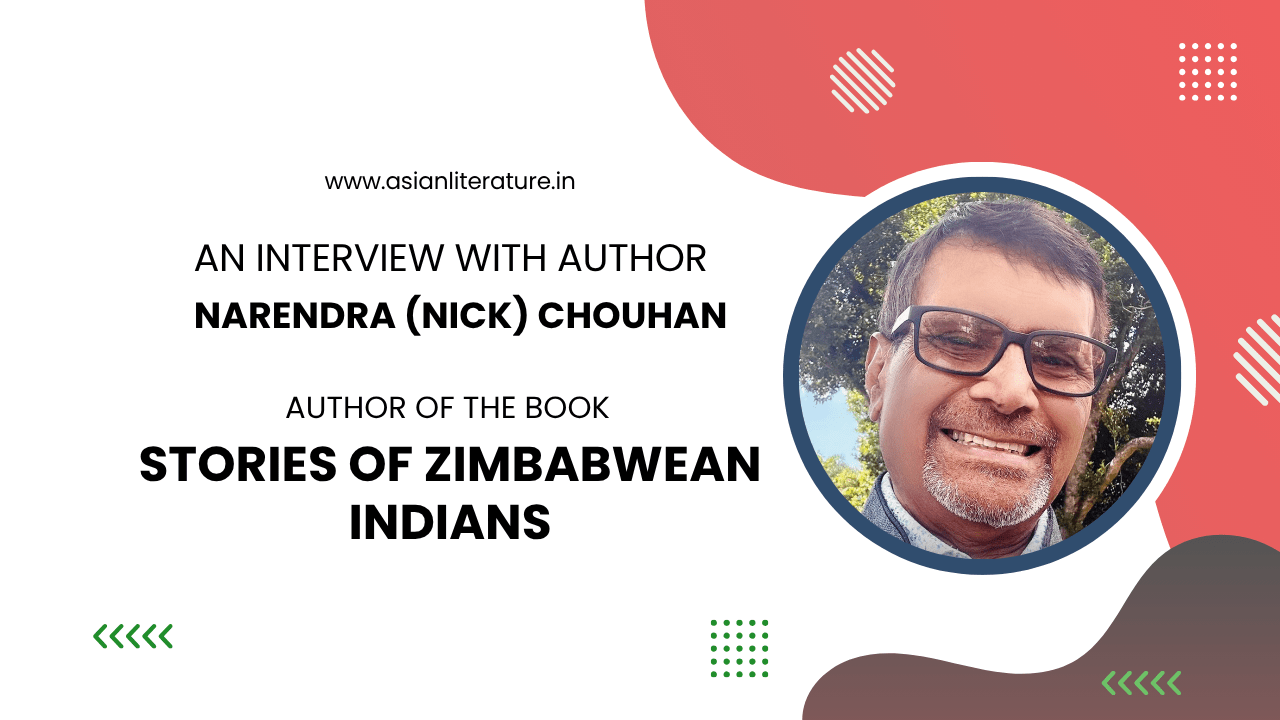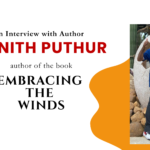
Narendra (Nick) Chouhan
Narendra (Nick) is a Zimbabwean of Indian heritage with a lifelong passion for cricket and community development. A respected writer and former sports administrator, he has engaged with international cricketers and chronicled the lives of Zimbabwean Indian sportsmen, entrepreneurs, and cultural icons.
Since retiring from business in 2015, Nick has enjoyed travelling with his wife, reconnecting with friends and family around the world—from India and South Africa to Dubai, Bali, the UK, Singapore, and Australia.
1. Stories of Zimbabwean Indian documents an underrepresented history. Why do you think the story of Indian communities in Southern Africa has remained so little known?
Author: These stories needed to be documented for future generations to appreciate the trials, tribulations, and perseverance our early pioneers endured. Without such records, their contributions and sacrifices would remain untold.
2. Sport plays a major role throughout the book. What makes cricket and hockey such powerful symbols of identity and resistance in your narrative?
Author: Cricket and hockey were the two main sports embraced by the Indian community, while football and tennis were seen as lesser pursuits. These sports became more than just games — they represented pride, unity, and a way to prove ourselves despite the barriers we faced.
3. The episode of Haroon Ismail’s exclusion from the 1969 Rhodesian cricket team is particularly powerful. How did it feel to revisit such moments of racial injustice?
Author: I prefer not to dwell too much on that. It is a well-known fact that most sports during the colonial era were racially segregated. Because of Rhodesia’s close ties with apartheid South Africa, only white players could represent the country at the national level.
4. Many of your stories highlight success emerging from humble beginnings. What do these stories tell us about the values that sustained the community?
Author: They show that anyone with a dream, perseverance, and hard work can reach great heights. I grew up with Haroon, and he is a strong example of someone who succeeded internationally through determination and the right mindset.
5. How did you access archival materials like photographs, scorecards, and family documents—were they difficult to preserve and authenticate?
Author: Most of the photographs and stories were personally shared with me by the people I featured. I also used online sources such as Google to verify and cross-check certain details.
6. The book spans nearly a century of community life. Did you observe any particular shifts in identity, belonging, or ambition across generations?
Author: Yes, definitely. The younger generation today has very different goals and lifestyles compared to our time. We loved being outdoors and spending time with friends, while many children now spend most of their time indoors and on electronic devices. The sense of togetherness has shifted in many ways.
7. Your writing captures both triumph and nostalgia. Was it difficult to maintain emotional distance while telling stories so close to your heart?
Author: Yes, very much so. I’m not a trained author, but once I began writing articles during the Covid period, I realized there was tremendous interest in our past. It was emotional, but also deeply fulfilling to reconnect with those memories.
8. What role do you believe documentation and storytelling play in preserving diaspora identity, especially for communities now scattered across the world?
Author: Storytelling keeps people connected to their roots — to where they were born and the communities they came from. It helps them appreciate what has been achieved by those before them and instills a sense of belonging and pride.
9. If you were to expand this project into a sequel or digital archive, what new directions or themes would you explore?
Author: I haven’t given that much thought, and at the age of 75, I’m not sure I’m up to another large project. But I’ll continue doing what I’m passionate about — sharing stories that celebrate our people and their achievements.
10. Finally, how do you personally define success for Stories of Zimbabwean Indian—as a book, as a record, and as a gift to your community?
Author: I feel deeply privileged to have done something I never imagined I could achieve. To me, success lies in keeping people informed and connected, and in preserving our shared history. I thank God for giving me the courage and strength to pursue this journey and for allowing me to touch the lives of others through it.
Book By Narendra (Nick) Chouhan : Stories of Zimbabwean Indians
Publisher: Evincepub Publishing

